The electronic music industry, both thrilling and challenging, poses a formidable test for promising creators. Musical expression here often meets commercial demands, and this can be tough, especially for those starting out. It’s a familiar narrative of survival – choosing between staying true to artistic passion or conforming for recognition. However, the challenges go beyond creative decisions.
Exploring the dimensions of resources, business, networking, and other facets in the music world is equally crucial. Thus, cultivating the right mindset is key. Today, we’ll delve into some hurdles encountered by both newcomers and established artists, and share tips on maneuvering them while staying true to themselves. All this and more – in this blog post.
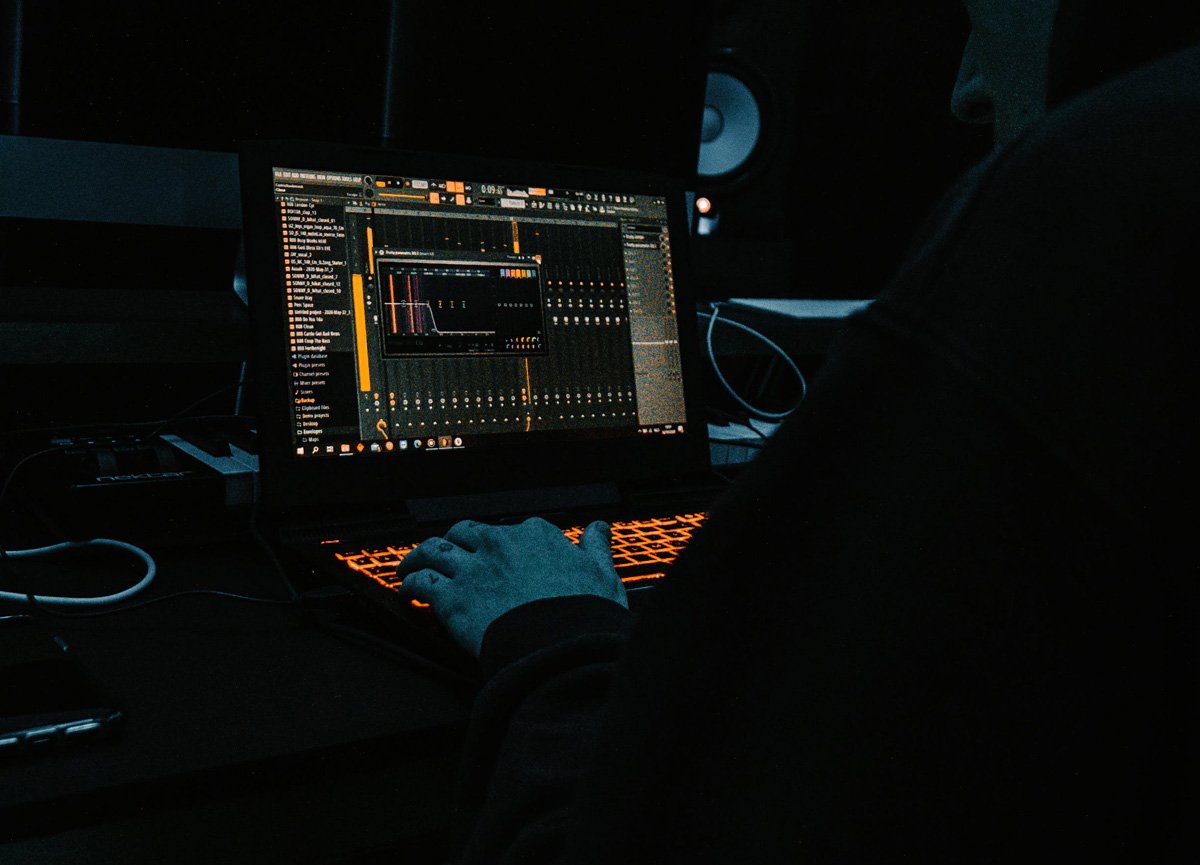
Major Obstacles Faced by Music Creators
There are a range of struggles, that artists face. From dealing with limited financial resources, industry gatekeepers, and networking obstacles, navigating industry changes and business aspects, to managing heightened expectations, and finding the right balance between authenticity and trends. Let’s dig deeper.
1. Economic Pressures and Lack of Professional Support
Emerging artists grapple with financial challenges — not the most surprising revelation, but a sad truth nonetheless. The juggle of love for music with the need for a stable income is very real.
Let’s be honest, making a living solely from music production as an underground producer is nearly impossible. When we say “underground”, we’re talking about music that’s authentic but not broadly commercial, perhaps appearing unconventional. You can call it indie, niche, avant-garde, or experimental.
Even established artists are facing this challenge, particularly amidst economic unrest, inflation, higher prices, and decreased demand for services and products.
Struggling to make ends meet often means limited resources for investing in essential music production tools, from top-notch equipment to software, virtual instruments, and sample packs.
The instability of income can make it challenging to retain the gear you already own, especially when urgent needs arise.
Not to mention the opportunities like music workshops, production courses, or mentorship programs, that become difficult to pursue. As a result, this financial constraint may impact the overall quality of productions.
For those without a dedicated studio space, creating music can incur expenses related to studio time, aside from the costs associated with mixing and mastering services—unless, of course, you’re skilled enough to handle it yourself.
The electronic music industry is a fierce battleground – super competitive and oversaturated. Making a breakthrough, gaining visibility, and keeping a professional image, which includes quality album artwork, promotional materials, and perhaps a website, often demand extra promotional efforts and investments. This, once again, puts economic pressure on the artist.
Last but definitely not least, there’s significant time and resource dedication without immediate financial returns, which remains a challenging aspect of the economic landscape.
2. Industry Gatekeepers and Networking Hurdles
For new artists, getting past industry gatekeepers, such as record labels, talent managers, and promoters is a real uphill struggle. These gatekeepers usually control how much an artist gets seen and how successful they become, so it’s vital to grab their attention.
Small music producers not only need quality, distinctive, music but also a smart strategy to catch the eye of these influential figures. It’s a competitive game that demands talent, persistence, and a bit of luck.
Even artists with a certain level of recognition may encounter obstacles when trying to navigate through industry gatekeepers. Economic challenges, changing industry dynamics, and a highly competitive landscape can compound the difficulties for established artists, which makes it essential for them to continually navigate and adapt to industry gatekeeping structures.
That’s why many opt to launch their own record labels or event promotion businesses, allowing them to bypass the need to go through gatekeepers.
However, this decision comes with its own set of challenges—so extensive that it’s a topic worthy of its own post (coming soon!).
Overcoming the pitfalls posed by industry gatekeepers often means establishing a strong network since connecting with the right people is crucial for exposure and collaboration opportunities. However, for many in the industry, this can be challenging or unclear.
Artists often struggle to connect because they lack industry contacts, miss out on networking events, or simply don’t have enough money. Sometimes, the acknowledgment or the motivation to do it is just not there.
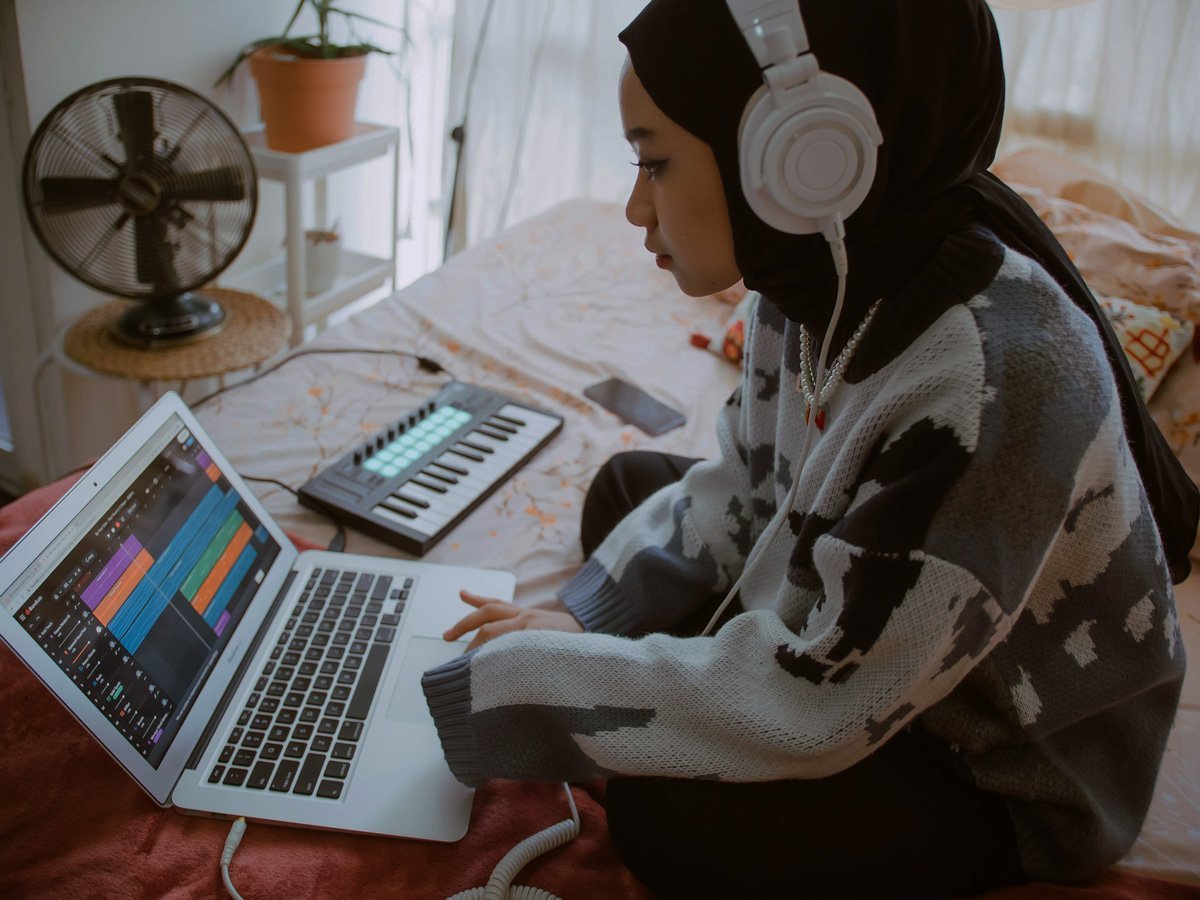
3. The Business Side and Change in Industry Dynamics
In music production, it’s a mix of creativity and business. As a producer, you need to understand both. This includes dealing with contracts, protecting your music with copyright laws, and managing your money well. Small artists, who may not have much experience, find these things exhausting.
To top up, the music industry is always changing, and this makes it even tougher.
You need to grasp new ways people enjoy music, reach different audiences, create an online presence, and position your music well.
Exploring revenue streams like streaming platforms, merchandise, and live performances – all of this is the business side of it. Without guidance, it feels overwhelming, like finding your way in the dark.
4. Expectations of Instant Success
In today’s digital age, there’s a strong belief in quick success. Many expect instant results, when in fact, building a sustainable career takes time and dedication.
The rise of social media platforms, streaming services, and instant communication has created an environment where information and outcomes are expected to be immediate.
Social media, in particular, with its emphasis on instant gratification through likes, shares, and viral moments contributes to the mindset of quick success. Unfortunately, in today’s society, not many people seem willing to put in the hard work! This mindset can be tricky and won’t lead you far.
However, for those who do work hard behind the scenes, the countless hours and the physical and mental exhaustion required to excel in your passion often go unnoticed.
While quick success may happen for a rare few, pinning your hopes on it without fully committing to your pursuit, putting in genuine effort, and having a safety net can be self-deceptive.
5. Juggling Authenticity and Trends
For both emerging artists and established creators, finding the right balance between staying true to your authentic style and aligning with current trends can be a tricky task.
On one hand, sticking to your unique style is crucial for a genuine connection with listeners. Yet, the industry and circumstances often encourage conformity to popular trends as a means to gain recognition.
Finding the right mix is like walking a tightrope – too much of one, and you might lose your unique sound… too much of the other, and you risk blending in with the crowd.
The struggle lies in finding the right mix – being real while navigating the ever-changing currents of industry expectations and trends.

Practical Strategies and Mindset Shifts for Music Creators
So, what steps can you take to make your musical journey smoother, more enjoyable, and less stressful? In this part of the discussion, we’ll cover practical strategies and a shift in mindset—a critical factor for successfully tackling difficulties.
“Change your mindset, change your life”, as the saying goes.
1. Have a Safety Cushion
In a world where material success often overshadows the purity of artistic intent, producers must redefine the purpose of creating music. What does music mean to you? Is it a medium for expressing ideas, emotions, and individuality, or is it a mere commodity—a tool to pay the bills?
There’s nothing wrong with aspiring for your passion to become your source of income. However, there lies a dangerous slippery slope of being entrapped by the sole pursuit of commercial success, potentially compromising the authenticity and artistic essence that make your music unique.
This is why we advocate for the idea of having a safety net.
It involves having a steady job to maintain a livelihood and treating music production as a beautiful hobby, perhaps transforming it into a side hustle in the future.
Having a safety net offers you several advantages:
- Financial stability. A steady job or alternative income source provides financial stability, easing the pressure to rely solely on music income, especially during unpredictable periods.
- Creative freedom. With financial stability, you can create music without the constant worry about commercial success. This freedom allows for more experimentation and the preservation of the your unique style and vision.
- Reduced stress. Knowing that there’s a reliable income source outside of music can reduce stress and anxiety, allowing you to focus more on the creative process and less on financial pressures.
- Long-term sustainability. It allows you to pursue your passion without burning out due to financial stress, enabling a more gradual and organic growth in your music careers.
- Flexible growth. You can gradually transform music production from a hobby into a side hustle, providing flexibility in how you approach your artistic journey and career development.
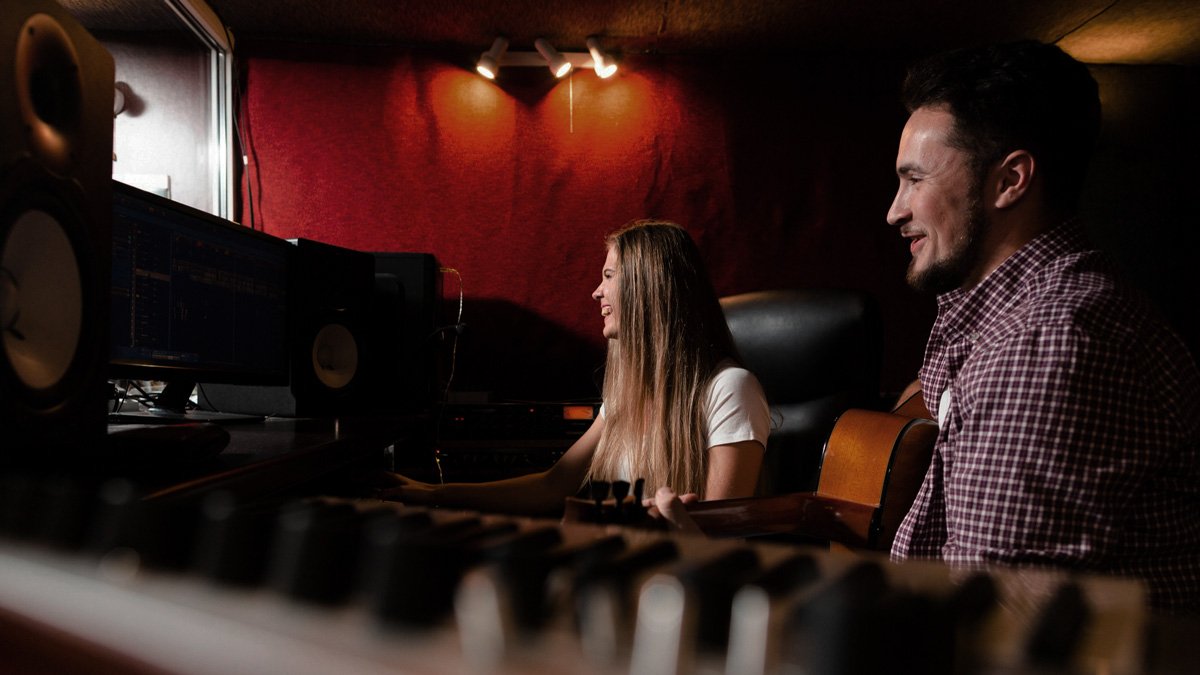
2. Network and Collaborate
Connect with musicians, producers, and industry professionals to open doors, gain insights, and potentially advance your career. For relaxed opportunities to meet fellow creatives, attend showcases, music festivals, and industry events.
Undoubtedly, utilizing social media platforms like Instagram, X (formerly Twitter), TikTok, or LinkedIn is another effective strategy. Don’t hesitate to share your work. While social media may be oversaturated these days, it still boosts visibility and helps you connect with a broader audience.
Every listener represents a connection with your work.
Even if it’s just one person, your music might have a meaningful impact on their life. Whether it inspires, brings joy, or resonates in some way, that connection is valuable.
Feeling anxious about presenting yourself on social media? A helpful way to overcome it is to understand that not every post has to be flawless. Social media is a dynamic space, and authenticity is appreciated. Share your progress, experiments, and thoughts along the way.
Engage in online forums
For those who might find social media overwhelming, forums can be a great alternative. Participating in online forums, such as social media groups and music-dedicated platforms, provides a space to feel seen, appreciated, and allows you to join discussions, ask for advice, share your creations, and connect with a community of musicians.
Here are a few online forums that might pique your interest:
- EDM Production forum on Reddit.
With over 720k members, this subreddit focuses on electronic dance music (EDM) production. It’s a vibrant community where producers share their work, discuss techniques, and ask for feedback. - Electronic Music Instruments and Electronic Music Production forum on Gearspace.
A dedicated section for electronic music producers, where you can discuss gear, production techniques, and get advice from fellow producers. - DJ TechTools forums.
A forum that discusses different aspects of DJing, covering equipment, techniques, and software. It also includes sections dedicated to software, producing, and mixing. - TranceAddict forums.
Originally centered on trance, it has grown to encompass various electronic music genres. It’s a lively community with talks about production, DJing, and events. With over 11 million posts!

Showing interest in others
Networking, however, is not a one-way street. It involves reciprocity. Not only should you seek support from others, but you should also give back.
Show genuine interest in others’ work, offer your support, and build relationships grounded in mutual respect and a shared passion for music.
Taking the initiative to connect personally is equally important. If you admire someone’s work or envision collaboration potential, don’t hesitate to reach out with a thoughtful message expressing your interest or seeking advice.
Personalized connections can lead to meaningful collaborations, mentorships, and lasting relationships.
3. Stand Firm in Your Authenticity
People often advise staying true to yourself, being authentic. But what does that truly mean? According to Stephen Joseph, the author of “Authentic”, authentic people have a few things in common. They know themselves, listen to their inner voice, understand their feelings, and face the truth about themselves, even if it’s not pleasant. How does this translate to an artist’s life and pursuits?
For artists, authenticity is the compass guiding their creative explorations.
- Knowing oneself allows artists to tap into their unique perspectives and shape their distinctive artistic identity.
- Listening to your inner voice allows for authentic expression of emotions and ideas, which in turn helps to foster a connection with the audience.
- Understanding feelings empowers artists to convey authenticity in their work, resonating with the listener on a deeper level.
- Facing uncomfortable truths is part of the artistic process, as it leads to honest and impactful creations.
Ask yourself about all of these four aspects.
How well do you truly know yourself? Are you attuned to your inner voice and genuine feelings? Can you confront uncomfortable truths about your art and identity as an artist?
By continually reflecting, you enhance your self-awareness and nurture the authenticity. It’s a stepping stones toward a more genuine and meaningful creative expression.
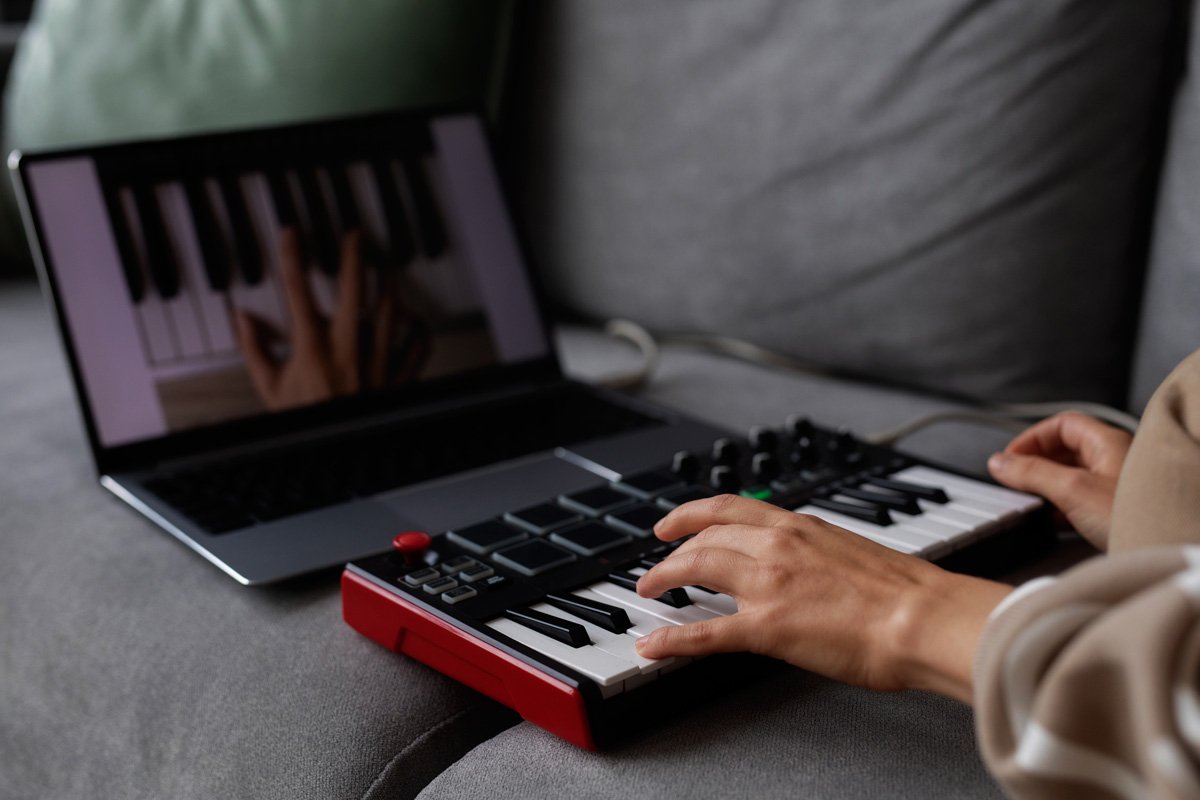
4. Stay Curious and Keep Learning
Never stop learning. Whether it’s mastering new production techniques or understanding the evolving music market, continuous learning ensures that you remain relevant and innovative in your approach.
Learn from free courses
If you’re on a budget and don’t need direct teacher support or a completion certificate, there are plenty of free online courses available. These can be excellent supplements to your learning journey.
Check out a few options:
- Free Music Production Courses and Tutorials on Udemy.
Dive into various DAWs (digital audio workstations). Learn the ropes of working with MIDI instruments, and audio materials, and learn various production techniques. - Free online courses from Berklee College of Music.
Explore a diverse range of courses covering Introduction to the Music Business, Copyright Law, and Developing Brand and Funding, to name a few. - Free Music Production Courses on Sonic Academy.
Organized by category, these courses cover everything from beginner guides and Tips & Tricks to music theory and beyond.

Learn from books
Diving into good old-fashioned book reading is an excellent way to kickstart your industry knowledge. We stumbled upon this fantastic list of recommendations from a Reddit thread.
Below, you’ll find a selection of handpicked books that span from the nitty-gritty details of music production to the broader picture of the music industry:
- “Dance Music Manual: Tools, Toys and Techniques” by Rick Snoman.
This comprehensive guide covers everything from music theory to sound design and is suitable for both beginners and experienced producers. - “The Secrets of Dance Music Production” by David Felton.
A practical guide that delves into the production techniques of successful electronic music artists, providing tips and tricks to improve your sound. - “Making Music: 74 Creative Strategies for Electronic Music Producers” by Dennis DeSantis.
Offers a collection of strategies to overcome creative blocks and boost your productivity in electronic music production. - “Last Night a DJ Saved My Life: The History of the Disc Jockey” by Bill Brewster and Frank Broughton.
Explores the history and evolution of DJ culture, providing a fascinating perspective on the art of DJing. - “All You Need to Know About the Music Business” by Donald S. Passman.
While not specific to electronic music, this book provides a comprehensive understanding of the music business, including contracts, royalties, and marketing strategies.
Additionally, you can explore Nedogled’s post for a more comprehensive book list. They’ve neatly categorized it into sections like Composition and Production, Mixing, Mastering, and Marketing.

Read industry blogs and magazines
In the present age of technology, staying updated on industry trends, software updates, and artist interviews is easier than ever through electronic music blogs and magazines. This practice is essential for your growth as it keeps you informed about the latest tools, improving your music-making skills.
Reading about others’ experiences creates inspiration and builds valuable connections. It also keeps you aware of market changes, ensuring you adapt and find new opportunities.
Ultimately, staying informed contributes to your professional growth, providing insights into both creative and business aspects of electronic music.
Without bragging too much, PlazMag is, of course, one of the best choices for staying in the know!
5. Value the Journey, Celebrate Success
Success in the music industry is a marathon, not a sprint. Some artists may take years to break through, requiring patience and consistent effort. Use the time between achievements to hone skills, experiment with your sound, and evolve artistically.
Appreciate every step of creating and performing music, finding joy in the process rather than fixating on the destination. In an industry with inevitable setbacks, view challenges as opportunities for growth.
When faced with obstacles, analyze and learn from them. See setbacks not as roadblocks but as stepping stones to fuel determination and resilience.
Dreaming big sets the vision, but it’s the decisive actions you take that bring it to life.
By setting realistic short-term goals and celebrating small victories along the way, you not only dream but actively build the path to your long-term vision.
Remember, success is an ongoing evolution shaped by appreciating every moment in your artistic quest. As Paulo Coelho said,
“The great victory, which appears so simple today, was the result of a series of small victories that went unnoticed”.
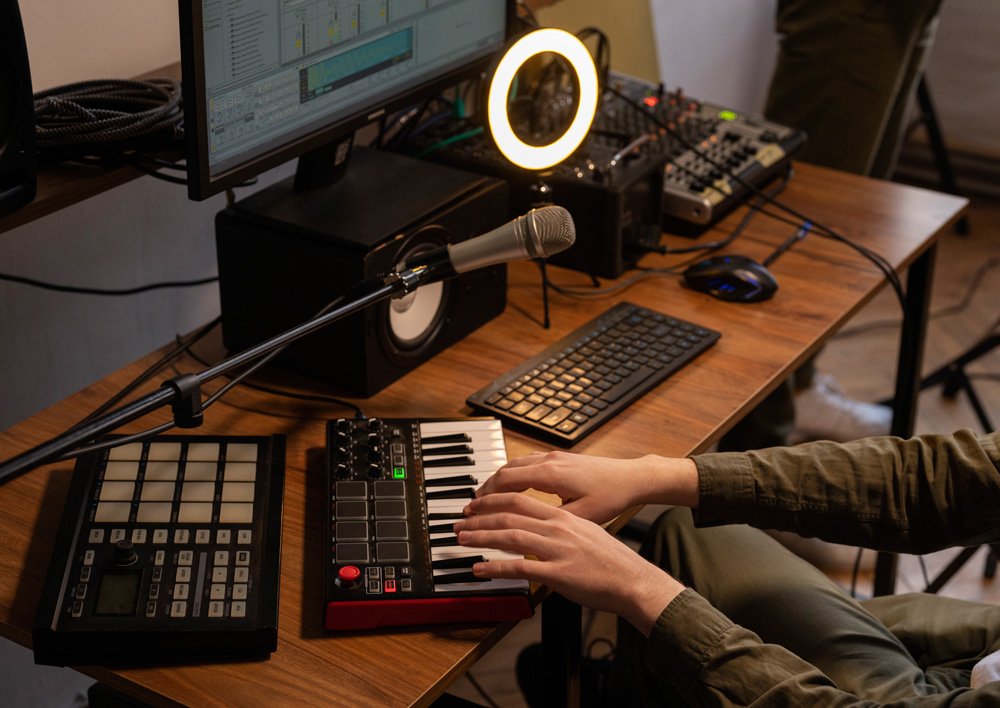
Conclusion
In wrapping up our reflections, we urge both emerging and established artists to embrace their transformative potential. Approach challenges with resilience and take pleasure in the process of bringing your art to life.
Remember, your creations hold significance and have a unique place in the world. Certainly, aligning passion with the practical aspects of sustaining a career is crucial. We hope that our insights have provided an additional perspective, enriching your musical quest for excellence.
Share your thoughts and experiences on this topic in the comments below. We look forward to hearing your perspective!
Mastering the Art of Electronic Music Production Business – Muse Waves
January 24, 2025 (03:41)
[…] https://plazmarec.com/insights/insider-ideas-for-artists-facing-challenges-in-electronic-music (2024-02-11) […]
Stay Informed: Latest Music Industry News & Updates – The Industry Dot Biz
July 8, 2025 (22:21)
[…] Independent and niche music outlets give us deep insights into the music world. Music-News.com keeps us updated on music from all over the globe, including songs by unsigned artists. Your EDM is a top spot for news, reviews, and culture in electronic dance music, covering many genres like house and dubstep11. […]
Stay Informed: Latest Music Industry News & Updates – The Industry dot Biz
December 12, 2025 (04:28)
[…] Independent and niche music outlets give us deep insights into the music world. Music-News.com keeps us updated on music from all over the globe, including songs by unsigned artists. Your EDM is a top spot for news, reviews, and culture in electronic dance music, covering many genres like house and dubstep11. […]